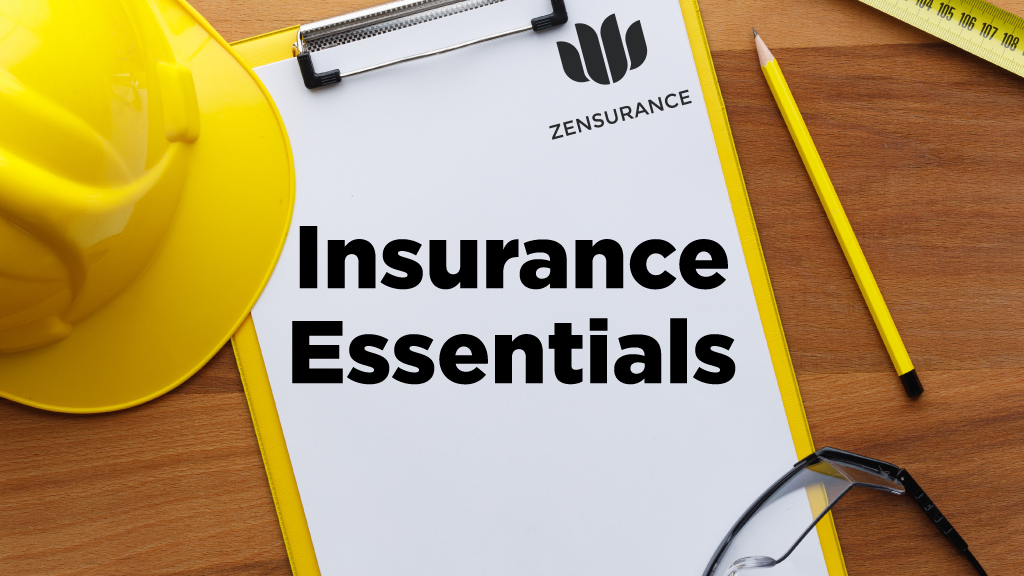Among the factors insurers weigh when reviewing your construction liability insurance application is your years of professional experience. But how can newly licensed and certified professional contractors who lack experience get insured? Here are three ways to get around that problem.
When applying to any insurance company for a policy — as a small business owner, self-employed professional or contractor for hire — the insurer will consider multiple factors to assess your risk profile.
That is how insurance carriers determine whether to offer you a policy and, if one does, what your annual premium is. This methodology is the same whether you contact an insurance provider directly to get one quote or go through a brokerage that gets quotes from several insurers. As a side note, your insurance company decides what your policy costs annually, not a brokerage.
Among the factors insurers weigh when reviewing your construction liability insurance application is your years of professional experience. Your professional experience is considered because insurers regard business owners and professionals who are experienced less of a risk to file a claim than someone new to the construction industry. It’s like how an auto insurer views an experienced driver versus someone recently licensed.
For instance, for homebuilding contractors seeking builders’ risk insurance, most insurers require you to have three to five years’ worth of experience. They’ll also want to know what kind of work you did and the values of the homes you worked on as part of their assessment.
Or think of an electrician who’s newly licensed and certified but who may not have done an apprenticeship in favour of acquiring the necessary certifications they need. No one can argue that acquiring professional certifications will enhance your career. Yet, many insurers will refuse to offer that electrician a policy or they will charge a higher annual premium to insure them. In contrast, an electrician who has completed an apprenticeship is considered more palatable because they have a level of experience and the required certifications.
It’s a real snag for newly licensed and certified professional contractors. It creates one of two problems: trouble finding an insurance company that will offer you a policy or difficulty getting insured at an affordable price. So, how can you offset that challenge?
Balancing certification versus experience
If you find yourself in that position, take heart, for there are things you can do. Here are three tips for newcomers to the construction and contracting industries to address the experience barrier and get insured at a reasonable rate:
- Seek an internship with a licensed, experienced professional in your trade while pursuing licensing. It’s a tall order, but you don’t have to postpone your education. Getting the added benefit of working with a veteran who will share their knowledge and experience with you counts as relevant experience in the eyes of an insurance company.
- While you’re pursuing your certifications and earning your stripes, don’t forget any hands-on experience you get through the trade school or post-secondary institution you’re enrolled at counts as practical knowledge. Therefore, if you have three years of hands-on training through your school, you’ll meet the minimum years of experience requirement.
- Have you ever done any renovation work at home, for a family member, or friend? If so, and it’s not specific to a licensed trade like an electrician, that counts as practical experience. So, if you gave your parents’ kitchen a makeover and installed new countertops and floors or installed new plumbing fixtures in your neighbour’s bathroom, count it.
Other factors that influence your contractor insurance rate
How much professional experience you have is one element insurers look at when assessing a construction contractor’s risk, but there are others, including:
- The types of projects you do and whether they’re commercial, residential or industrial;
- The kinds of operations you perform like demolitions, tunnelling, drilling or mining;
- If you do structural work such as raising or moving built structures;
- If you use flammables or explosives;
- If you’re a small business owner, the number of employees you have and their levels of experience;
- The location of your business and the places where you work;
- If the construction projects you do are in areas that have a high crime rate;
- The tools and equipment you own;
- Any previous insurance claims you have filed; and
- What your annual and projected gross revenue is
It seems like a lot of work to get insured, and at times it can be arduous or confusing. But that’s where a licensed broker can prove advantageous.
They will do the legwork for you and advise you on your best options.
Aharshan Thangarasa is a licensed broker and team lead, contractors at Zensurance, Canada’s leading digital business insurance brokerage. Get a free quote for your insurance needs by visiting Zensurance.com/DCN.






Recent Comments